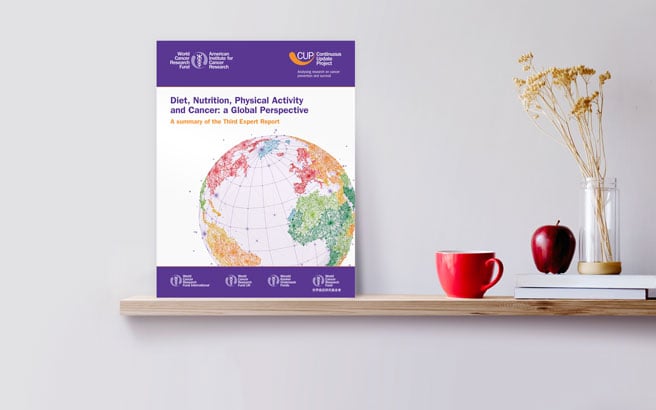5 ways the UK government can be bolder on cancer prevention

With the UK Labour Party in government for just over a year, this year’s Party conference provided a valuable opportunity to take stock of the progress made on health and identify areas in need of improvement.
Academics, people with lived experience, and experts from thinktanks and charities congregated in Liverpool in September to share how the government can be bolder on prevention – here are my top five takeaways:
1) Tackle poverty alongside prevention
Just before conference, the government published its 10 Year Health Plan for England, setting out a raft of policy priorities to achieve its health mission. Positively, a key theme throughout the Plan was the need to tackle health inequalities – the systematic and unfair differences in health between different groups of people – especially through prevention.
At an IPPR and Impact on Urban Health fringe event, “Can the Government deliver its long-term health mission?”, speakers made impassioned pleas about the need to address the social determinants of health. Dr Sonia Adesara, a practising GP and Vice Chair of the Fabian Society, explained that while she may be able to treat the symptoms and health issues that manifest as a result of living in poverty, such efforts are in vain if the government does not tackle the root causes of ill health.
These drivers are wide ranging, from poor food environments, where junk food is the cheapest and most available option, to substandard housing. Crucially, addressing them requires the adoption of a truly cross-governmental approach. As Peter Babudu, the Executive Director at Impact on Urban Health, put it, even the Department for Health and Social Care at its very best cannot tackle these complex issues alone.
These are subjects World Cancer Research Fund has engaged with significantly through our blog series on health inequality and cancer.
2) Prioritise public health over industry interests
Another hot topic at conference was the need to place public health above vested interest. The history of industry derailing, delaying and diluting public health policy in pursuit of profit has long been documented both in the UK and abroad. Yet, the food and drink industry continues to play a key role in various policy development processes under Labour.
The delayed junk food marketing ban provides a clear example of why the government needs to make a concerted effort to tackle vested interests. October was meant to see the implementation of a key manifesto pledge: a watershed ban on junk food advertisements. Instead, the ban, which could have a profound effect on reducing childhood obesity, has been delayed yet again. Worse, industry lobbying has resulted in a complete brand exemption. In practice, this means that products like Cadbury Diary Milk, Mars bars, and Coca-Cola can still be advertised because they are not only products but brands as well.
Walking through the exhibition hall, the presence of industry was hard to miss, with prominent stands for Heineken and Sainsbury’s – a reminder that just like those of us in public health, industry is also working hard to influence government.
3) Bring the public along on prevention
Action to improve public health is often depicted, especially in the media, as “nanny-statism”. At Nesta’s event, “How can the government make its health reforms a success?”, Kevin McKenna, the MP for Sittingbourne and Sheppey and a former NHS strategist, insisted that we need to communicate more clearly with the public about why the 3 health shifts (sickness to prevention, analogue to digital, and hospital to community) are so important. Ultimately, we need a more compelling case to counter the “nanny-state” narrative, which does not reflect the public’s views. Polling consistently shows strong support for government action to improve health and reduce inequalities.
Meanwhile, at Demos’ fringe “Prevention: From overlooked to mission critical”, Prof Gurch Randhawa, Director of the Institute for Health Research, emphasised the importance of approaching prevention in a culturally sensitive manner so that everyone benefits. For example, schemes providing healthy food to those in need must take into consideration the food preferences and dietary requirements of the diverse communities they serve.
The task of bringing the public along on the prevention agenda does not rely solely on the government – charities, including ourselves, can play an important role. Our brilliant Health Information team’s work educating the public on how they can reduce their risk of developing cancer through good nutrition and an active lifestyle is just one example.
4) Beware the temptation of silver bullets
Despite the recognition of the need for a health-in-all-policies approach, the temptation of “silver bullets” and quick fixes loomed. This was particularly notable in discussions around weight-loss jabs.
In the UK, obesity is the second biggest cause of cancer after smoking. Addressing this crisis requires a coordinated approach that includes both prevention and equitable access to treatment. However, in his conference speech, the Health Secretary, Wes Streeting, didn’t quite echo these sentiments. Instead, he declared that “weight-loss jabs could help us finally defeat obesity”, while failing to mention the need to fix our broken food environment.
The hype around weight-loss drugs was reflected in long queues for a New Statesman event hosted in partnership with Eli Lily, a pharmaceutical company that produces appetite suppressants.
Wearable tech also came up in a similar context, with suggestions that it could revolutionise how individuals take charge of their own health. It was positive that the need for digital inclusion was recognised, but again, we need to ensure that proven policy interventions, such as salt and sugar taxes, remain the first port of call.
5) Reducing alcohol harm is key
One glaring omission was the absence of discussion on alcohol harm, especially given that alcohol deaths have reached record highs across the UK.
Charities including the Forward Trust ensured the issue was still on the agenda, hosting a sober reception as part of their work to advocate for alcohol-free spaces at conference.
We also highlighted alcohol harm, building on this summer’s Cancer Prevention Action Week, which sparked a national discussion on the link between alcohol and cancer. This included meeting with Dr Scott Arthur MP at conference to discuss alcohol-related cancer and the urgent need for government to deliver on its commitment to introduce mandatory alcohol labelling, ensuring that labels make the cancer risk of alcohol explicit.
The prevention mission is here to stay
Despite the long way we have to go, one thing is abundantly clear: the prevention mission is here to stay.
Fortunately, there are several critical influencing opportunities on the horizon where the government can apply these lessons from conference, such as the forthcoming National Food Strategy. Over the coming months, we’ll be working hard to hold the government to account in delivering on cancer prevention and survivorship.
If you’d like to keep up to date with our work, sign up to our monthly Policy and Public Affairs newsletter. If you have any thoughts on what we’ve covered in this blog, we’d love to hear from you! Get in touch with us at policy@wcrf.org.


